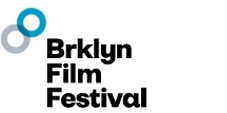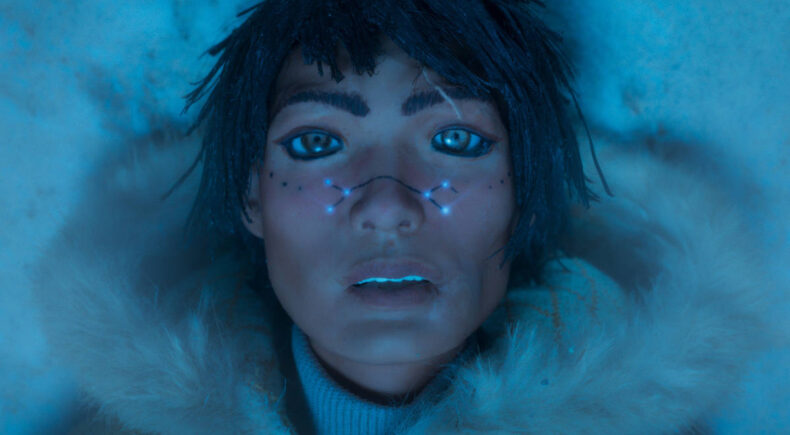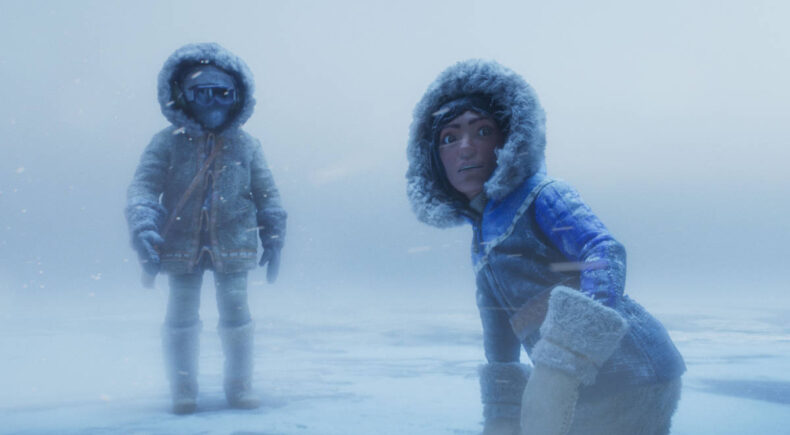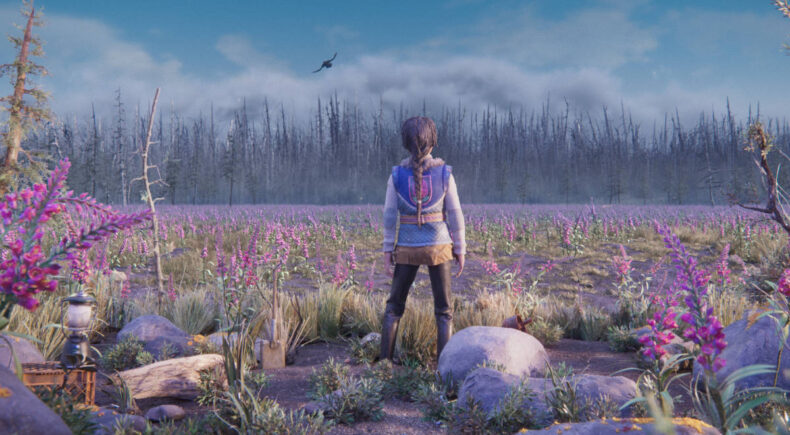Inkwo for When the Starving Return
Director: Amanda Strong
Cast:Paulina Alexis, Tantoo Cardinal, Art Napoleon
Crew:Writers: Amanda Strong, Richard Van Camp, Bracken Hanuse Corlett, Amanda Strong (Spotted Fawn Productions). Producers: Nina Werewka (Spotted Fawn Productions)), Maral Mohammadian (NFB).
Email:festivals@nfb.ca
Web:mediaspace.nfb.ca/epk/inkwo-for-when-the-starving-return/
Synopsis
Two lifetimes from now the world hangs in the balance. Dove, a young, enigmatic, gender-shifting warrior, discovers the gifts and burdens of their Inkwo (medicine) to defend against an army of hungry, ferocious monsters. Dove’s courage, resilience and alliance with the Earth culminates in a battle against these flesh-consuming creatures, who become stronger with each body and soul they devour. Inkwo for When the Starving Return is a call to action to fight and protect against the forces of greed around us.
About the director
Amanda Strong is a Michif/Métis filmmaker and director. She is the owner and founder of Spotted Fawn Productions (SFP), an Indigenous-led animation studio. Amanda is a CSA and Emmy-nominated director whose award-winning films, including Biidaaban and Four Faces of the Moon, have been screened and exhibited worldwide at venues such as TIFF, Cannes, the Academy Museum of Motion Pictures, and the American Museum of Natural History. Amanda was the first Canadian director selected for the Sundance Institute’s Indigenous Filmmaking Lab.
Filmmaker's note
It’s rare for a story to remain timeless within an exceedingly long production schedule. I vividly remember getting goosebumps when Richard Van Camp invited me into his “Wheetago War” universe to create an animated film. His short story offered a balance of terror and beauty and challenged me to explore important and relatable topics: the gender spectrum, greed and destruction of the land, and the return of ancestral medicine and teachings. With this story, I knew we were embarking on something special, and it was my dream to lead this production and process into new creative and technical territories.
The process ignited the project’s path of dreaming and trusting the unknown journey ahead. To do this in a way that honours the complexities and nuances of a story requires time. The label “short film” tends to shrink the extensive scope of the work undertaken at every step. Inkwo for When the Starving Return was woven together carefully and collaboratively, pulling into it important backstories and context from Richard’s bigger world. For seven years, collective hands and minds treaded carefully down our path of growing and artfully creating Inkwo for When the Starving. Its title offered both the beauty and burden to carry and represent.
The many layers of this story drew me inward. As a person who regularly shifts within the spectrum, I resonated with the positionality of gender fluidity. I also resonated with the discomfort of the “creatures”—their burden and how to properly represent them in a way that was responsible to the power they hold. What did it mean to write about them and build puppets of these creatures that hold such poisonous energy? Do we remove them? Name them? Embrace that they are very much a part of our world? What does it mean to summon them knowing that they have been waiting for this moment to rebuild themselves from Western society’s neglect and greed? It felt like the right time to advance the physical builds and capabilities of our characters, to witness the magic on screen when the still frames begin to blend in motion.
This story is a call to action in the face of what two lifetimes from now could become. Indigenous futurisms are important spaces for dreaming our worlds and how things might be. What will our world be like? In this case, Richard set the bar for Dove’s future. It was important to me to ensure that I was the right person to tell this story. Working with Richard and his Elders brought Protocols and language into the project, which we integrated into the process of developing the film’s characters, environment and costume design. This is indicative of how the making of Inkwo for When the Starving Return has truly been, at its core, a collaborative and community effort. In addition to addressing pressing sociopolitical, economic and environmental problems faced by industrial Western society, this is a film that brings us back to the moral compass of Indigenous oral storytelling.
It’s a touching experience and a responsibility to dive deep into written worlds, to build a wireframe that can lift words off the page and have them dance into motion. Collaboration is a gift, and the gift is in the making. It’s a precious place to envision what is possible when the sum of talents, and passion for a story, collide. It’s a terrifying, mysterious and organic journey.





